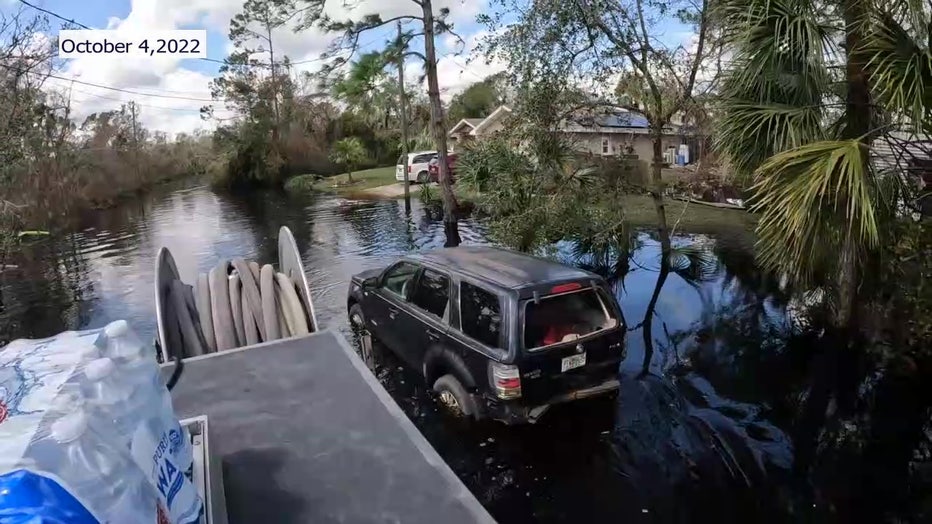Amendment 1, explained: Florida voters weigh tax breaks for flood-prone areas
ST. PETERSBURG, Fla. - Some lawmakers describe Amendment 1 as a money-saving measure to protect Florida homes from flooding. Others say Amendment 1 could mean the government makes less money through taxes, which is essential to providing services year-round.
If it’s approved, Amendment 1 would let the legislature pass a law allowing homeowners in FEMA's Flood Hazard areas to make flood prevention improvements to their homes – without their property taxes rising.
That would include half of the tax base in Pinellas County, according to property appraiser Mike Twitty.
"By being proactive, it allows property owners to obviously get their families out of harm’s way and puts less pressure on first responders that possibly might have to respond to those homes that are flooded in certain situations," Twitty said.
Any residential property up to nine units within FEMA’s Special Flood Hazard areas, also known as Zones A and V, would qualify, Twitty said.

Homeowners can search zones by address on FEMA’s Flood Map Service Center. Blue indicates A or V zones.
People in those areas would be able to build 110% of the original square footage of their homes without raising their taxes, under the new law.
"It helps communities by lowering the potential burden to the tax base over the long haul because it makes our tax base more resilient and our communities more resilient to these storms and rising water," Twitty said.
Twitty brought the proposal to state lawmakers last year.
University of Central Florida political science professor Aubrey Jewett said there was bipartisan support to put it on the ballot in Florida.
Habitat ReStore helps Venice residents after Ian
Flooding during Hurricane Ian took everything from some residents of Venice and North Port. Habitat for Humanity's ReStore is helping families get back what they lost.
"This basically would make it so property owners who invest in their properties to make it more flood proof won’t see their property taxes go up because of it," Jewett said.
Jewett said Amendment 1 could also mean the government wouldn’t pay homeowners as much after storms.
"I think the biggest pros are kind of evident now in the aftermath of Hurricane Ian," he said. "This amendment was actually proposed well before anyone knew we were going to get smacked with the hurricane and the thought was to try to encourage homeowners to flood proof their homes and maybe that would mean less government bailouts on the backend when people are flooded and don’t have flood insurance and this sort of thing," Jewett said.
Hurricane Ian’s impact on tourism
Visit Florida has launched a new tourism campaign to bring visitors to the state in the wake of Hurricane Ian that focuses on areas not impacted by the storm.
He said while there are pros, there are also cons to the amendment.
"If we vote for a property tax break for these folks, it might mean less tax dollars to local governments to provide essential services that they need to provide. Two, if we cut taxes with this amendment, maybe local governments decide they have to raise the tax rates for other property owners in order to keep that money coming in so that they can keep providing services," Jewett said.
He added that Amendment 1 is not specific about what would be included as a flood improvement.
"They’re a little weary about people could put a whole second story on their home and then claim that was for flood reasons and then not pay higher taxes for the increased value," he said.
Twitty conceded the language of the amendment can be confusing, but said it had to be written a certain way to fit within the constitution.
"It’s really limited when you get into the implementing bill, which is the bill that goes along with a constitutional amendment that puts the guardrails on it and so it’s really about elevation of the main structure. It does not apply to site improvements, seawalls, those types of things at this point," Twitty said.
The amendment, named Limitation on the Assessment of Real Property Used for Residential Purposes, says "any change or improvement made for residential purposes to improve the property’s resistance to flood damage" is included.
It needs 60% of the vote to pass. If it passes, it would to into effect Jan. 1, 2023.

